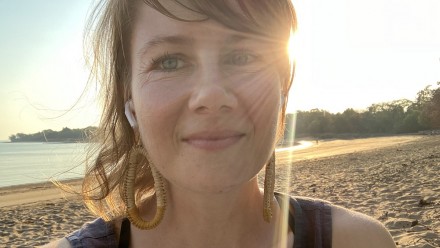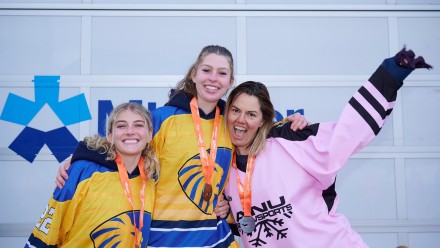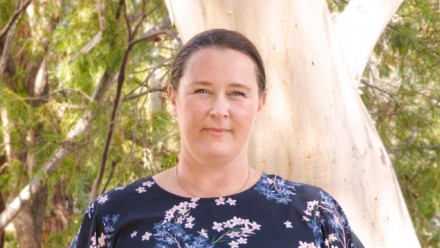Sleep yourself healthy
Lori Delaney has always had an interest in research. Working in intensive care, she says “you can see gaps in what we know and what we assume we know.”
After a move to Canberra from Victoria, where the hospitals she worked in had big research profiles and involved nurses in many ways, Lori decided she wanted to do something a bit more challenging. This is how she came to be involved in a study that explores the sleep quality of critically ill patients.
Lori explains that “trying to develop high quality care with – hopefully – optimal outcomes is quite exciting, even just basic aspects of care like sleep has such an important role in the context of critical illness.”
Sleep is the main component of Lori’s PhD, she is seeking to understand the sleep profile of patients in intensive care with a focus on early mobilisation to see them out of bed and moving towards recovery.
It can be complex for a clinician to assess sleep because they have to decipher the brain activity of the patient; to do this for each patient is unfeasible. Lori describes how she employs motion accelerometers that track movement – and lack of movement – to help to discriminate between how much sleep a patient might be having and how much interference and wakefulness they might experience overnight. She examines this against nurse observations and patient self-report to assess whether technology is in fact more accurate than observation.
Lori also wants to understand if simply changing something within the environment might help. This means determining whether noise or exposure to low level lighting, which interferes with the normal hormonal release that helps trigger sleep, is a contributing factor or perhaps if the number of clinician visits and how often they are scheduled makes it hard for a patient to sleep.
Lori is halfway through data collection and has not yet pinpointed one factor over another but, as a general rule for hospitals, she says “there needs to be greater consideration of hospital design and how you configure wards so that you have an environment that creates a sense of calm.” This can mitigate these different factors such as noise as well as impact on behaviours of staff so they do not burden patients.
Research Experience
As to the process of doing her research, “I feel like the finish line is in sight” says Lori, “there have been a few successes along the way. Doing research by publication, you get some validation and reward.”
Her advice for students thinking of a higher degree by research is that, if you have an inclination to do it, then there’s no reason not to do it. Just get a good supervision team behind you as they’re the ones who will support you.
She agrees that towards the end when looking at doing the analysis, it gets a bit more stressful. “It’s this last little hurdle but I wouldn’t say the process has been negative. I wouldn’t be put off by it. I reckon it’s pretty good actually.”
Lori Delaney is a PhD student at the ANU Medical School and Assistant Professor in Clinical Nursing at the University of Canberra.
Supervision Team
Associate Professor Frank Van Haren (Chair) - ANU Medical School
Dr Hsin-Chia Carol Huang - ANU Medical School
Professor Violeta Lopez - National University of Singapore
Dr Edward Litton - University of Western Australia














